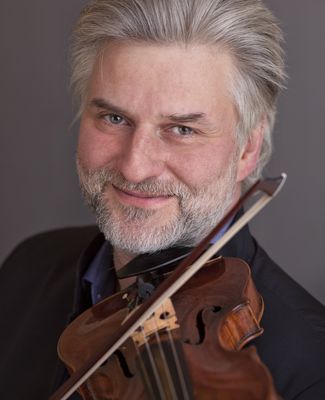
The Cemal Reşit Rey Concert Hall is hosting quite a program this year, and it finished October off with impressive performances back to back. Among them was the Berlin Konzerthaus Chamber Orchestra, which enabled our souls to escape to a pleasant evening of the finest of European music with Mozart, Hoffmeister, and Bruckner.
The violin chair was Prof. Michael Erxleben, a virtuoso of the Berlin Philharmonic, the Royal Concertgebouw Orchestra of Amsterdam and the Munich Philharmonic, and a professor of music at the Berlin University for the Arts. And on the viola solos was Atilla Aldemir, a name familiar to anyone who is a frequenter of classical music performances in Istanbul. I first encountered him several years ago, again at the CRR, in a performance titled “Fazıl Say & Friends.” Our paths crossed yet again, with Aldemir this time performing as a friend, and player, of the Berlin Konzerthaus.
The first piece of the program was Mozart’s Symphony in A Major, an all time favorite among the string classics, a composition that no concert program can go wrong with. As I listened in musical ecstasy, I thought that there is a reason that the name Mozart has come to mean what it stands for.
I recalled a dialog from the movie Amadeus, in which Mozart had objected to the King’s suggestion that he alter one of his works: “Every note in the composition has its specific raison d’être. If it had not been meant to be there, it would not have been put there.” And so it felt that not one note was too much, too fast, too slow in the piece. In this way, we listened to the music of perfection. The Allegro moderato (fast moderate) meter of the first movement implied perfect “moderate” rhythm. The Andante (slow) movement implied not a slow, lulling movement, but one of gentle aesthetics. The Allegretto and Allegro con spirito were, needless to say, perfectly restored the spirit.
The program continued with Hoffmeister’s Viola Concerto in D Major, the awaited piece with the viola solo. Aldemir played a Zanetto Peregrino viola of 1560 make. A viola four centuries old, being the messenger of music transcending the boundaries of time. The Berlin Konzerthaus Chamber Orchestra accompanied Aldemir, each instrument with its own part in the composition, just as intricate as the viola solos. One thing that I enjoy about chamber orchestras is that their small size makes it possible to distinguish the sound of each and every single instrument. So aside from the viola solos, I was also on full alert to try and distinguish each individual sound coming out of each individual instrument.
The final piece of the Berlin Konzerthaus Chamber Orchestra was Bruckner’s Strings Quintet in F Major, where Aldemir joined the ensemble as the viola chair of the orchestra. This piece featured only string, without any of the woodwinds. Originally a quintet piece, it was adapted for a chamber orchestra. A composition that showed sadness in its most beautiful and moving form, featured a soft violin theme with viola and cello interjections on the high strings, was ornamented with pizzicatos, tremolos, and echoed dialogues interchanged among the different instruments. Timeless compositions of the European masters, with the Berlin Konzerthaus Chamber Orchestra as the messenger of the evening. I could not have asked for anything more.









